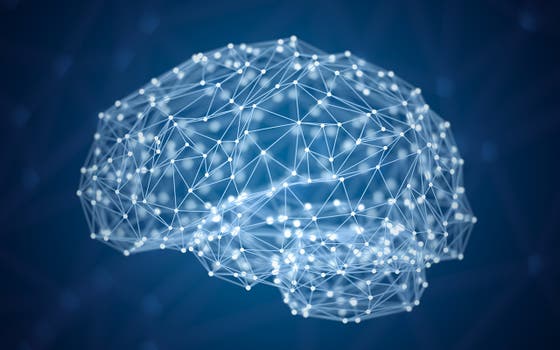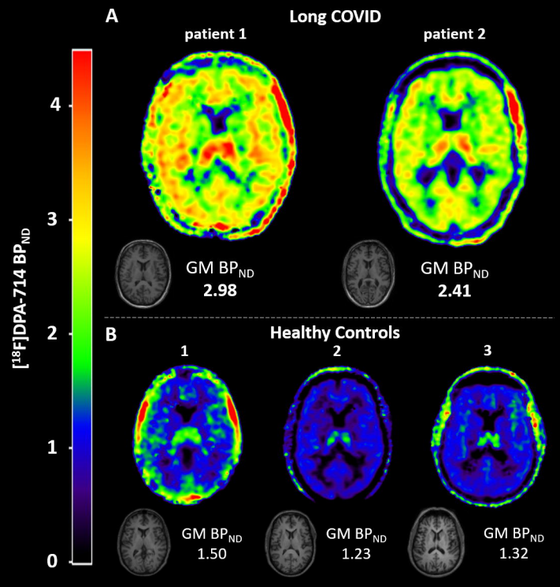Jun 6: Long covid patients show extensive brain inflammation

Several studies are underway on the relationship between 'long covid' and specific involvement of organs such as heart or respiratory muscle. These new findings demonstrate extensive brain damage 'in vivo' (in living people) for the first time. Researchers from Amsterdam UMC and UMC Utrecht saw inflammation throughout the brain region in two patients with long-term symptoms after a coronavirus infection. This has not been shown in living people with pulmonary covid. The findings were published on a preprint server and therefore not yet peer-reviewed.
"We would like to know why people keep fatigue symptoms and cognitive complaints for so long after a coronavirus infection," says nuclear medicine specialist Bart van Berckel of Amsterdam UMC. "We are now seeing inflammation throughout the brain which is striking, and there may be a link between long covid and brain inflammation. A study with a larger number of patients will hopefully bring more clarity." Additional research is needed to know what link there is between these inflammations and long covid," said researcher Denise Visser of Amsterdam UMC.
More inflamed brain cells
The two patients studied had a different disease course. The male patient was in the ICU and has partially returned to work. The younger female patient had mild corona complaints and is still on sick leave. In both patients, inflammation could be seen throughout the brain. The inflammations were 76 and 121 percent increased, respectively, as compared to the level seen in the brains of healthy people. These findings are important starting points for follow-up research.
Advanced scan
The patients underwent a specific, advanced, burdensome brain scan which showed the inflammatory response on imaging. These scans are not available in routine clinical care. The researchers are considering how to make such a scan accessible. "It is currently not possible to request such a scan from a general practitioner or hospital," says project leader Nelleke Tolboom of UMC Utrecht. "The selection of patients is made for further research and patients unfortunately cannot sign up for this."

Brain inflammation (green-yellow on the brain scan)
More research needed
It is still unknown how patients with such brain inflammations can be treated. It is also unknown whether every patient with long covid shows the same inflammatory response. This is what the researchers at Amsterdam UMC and UMC Utrecht will look at with new research. "There is still a lot we don't know, but these were the first two patients with long covid to be included in this study, and we felt that these data were too important not to publish at this stage." Therefore, this study, funded by the ZonMw COVID-19 program, is now in preprint. A study in preprint gives other scientists around the world the opportunity to learn from it and collaborate for more research results.
Many questions about long covid
People with long covid often struggle with questions about this disease. On the website of C-support, which was commissioned by the Ministry of Health, Welfare and Sport to provide advice and support to long covid patients, more information can be found about long covid and frequently asked questions about this study. Questions can also be sent to: info@c-support.nu. In due course, results of follow-up studies can also be found via this website.
Publication
Visser D, Golla SSV, Verfaillie SCJ, Coomans EM, Rikken RM, van de Giessen EM, et al. Long COVID is associated with extensive in-vivo neuroinflammation on [18F]DPA-714 PET. Posted on medRxiv, June 4, 2022
